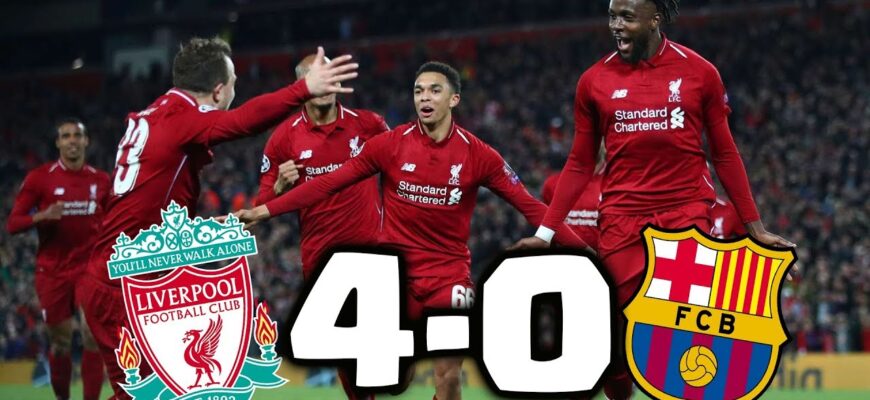The UEFA Champions League, Europe`s premier club competition, rarely fails to deliver drama. This week proved no exception, serving up a potent mix of surprising results, tactical quandaries, and tantalizing showdowns. As the dust settles on one round of fixtures, the next looms large, promising further tests for continental giants. From the Merseyside Reds grappling with newfound vulnerabilities to a monumental clash between titans facing an unprecedented injury crisis, the narrative of the beautiful game continues to unfold with unexpected twists.
Liverpool`s Precarious Position: When Luck Runs Dry
For much of the season, Liverpool FC had cultivated a reputation for finding a way, often pulling victory from the jaws of stalemate with late heroics. This habit, however, appears to be losing its charm, or perhaps, its efficacy. A recent 1-0 defeat to Galatasaray in the Champions League has highlighted underlying issues that, according to some seasoned observers, were merely “papered over” by earlier results.
Manager Arne Slot, still finding his rhythm at Anfield, now faces his first significant tactical test. Critics point to experimental decisions, such as deploying Dominik Szoboszlai out of position at right-back—a role where he conceded the decisive penalty—instead of a more natural fit like Jeremie Frimpong. Furthermore, the club’s substantial investment in Florian Wirtz seems yet to fully translate into consistent attacking impetus, largely due to a perceived shift from his optimal role.
Jamie Carragher, the former Liverpool stalwart and now a respected analyst, didn`t mince words. He described Liverpool`s current style as “basketball,” an end-to-end affair lacking the defensive solidity and balanced control expected of a top-tier team.
“They haven`t gained anything going forward, but they`ve lost a lot defensively,” Carragher observed, throwing down a gauntlet for Slot.
The challenge is clear: transform a team reliant on individual brilliance and last-gasp efforts into a cohesive unit capable of consistent, dominant performances. The honeymoon period, it seems, is officially over.
Barcelona vs. PSG: A Battle of Resilience Amidst the Ruin
Shifting focus to another corner of Europe, the Champions League fixture between Barcelona and Paris Saint-Germain promised fireworks, but perhaps not in the way initially anticipated. This clash of European heavyweights, both considered contenders for the ultimate prize, arrived amidst a rather literal battlefield: their respective treatment rooms.
Barcelona entered the fray without goalkeeper Joan Garcia, midfielder Gavi, and winger Fermin Lopez. However, their injury list paled in comparison to that of their Parisian adversaries. PSG`s woes are significant, with Ballon d`Or winner Ousmane Dembele sidelined with a thigh injury, joined by Desire Doue, Khvicha Kvaratskhelia, Marquinhos, and Joao Neves. It’s a roster depletion that would test any manager’s resolve.
Yet, PSG manager Luis Enrique remained remarkably unfazed, exuding a stoic confidence in his pre-match remarks.
“That`s football, that`s competition, that`s reality! You have to adapt,” Enrique stated, downplaying the crisis as a natural part of the sport.
His philosophy, honed last season when he masterminded a system-driven PSG less reliant on individual superstars, would now face its sternest examination.
With star attackers like Lamine Yamal, Raphinha, and Robert Lewandowski still available for Barcelona, the onus was on PSG`s depth to step up. Players such as Bradley Barcola, Gonçalo Ramos, and Lee Kang-in were thrust into the spotlight, tasked with maintaining PSG`s formidable European presence. This wasn`t just a match; it was a profound test of tactical adaptability and the collective spirit of two clubs vying for continental supremacy under less-than-ideal circumstances. The “beautiful game” sometimes requires its architects to build wonders with fewer, and sometimes less familiar, bricks.
The Unyielding Demands of European Football
As these stories unfold, they paint a vivid picture of modern European football: a relentless cycle of triumphs, setbacks, and continuous adaptation. The stakes are perpetually high, the margins razor-thin, and the spotlight unforgiving. For Liverpool, it’s a moment of introspection and necessary evolution. For Barcelona and PSG, it’s a testament to resilience and the depth of their squads. In this theatre of dreams and occasional nightmares, the only constant is change, and the ability to navigate it defines champions.









